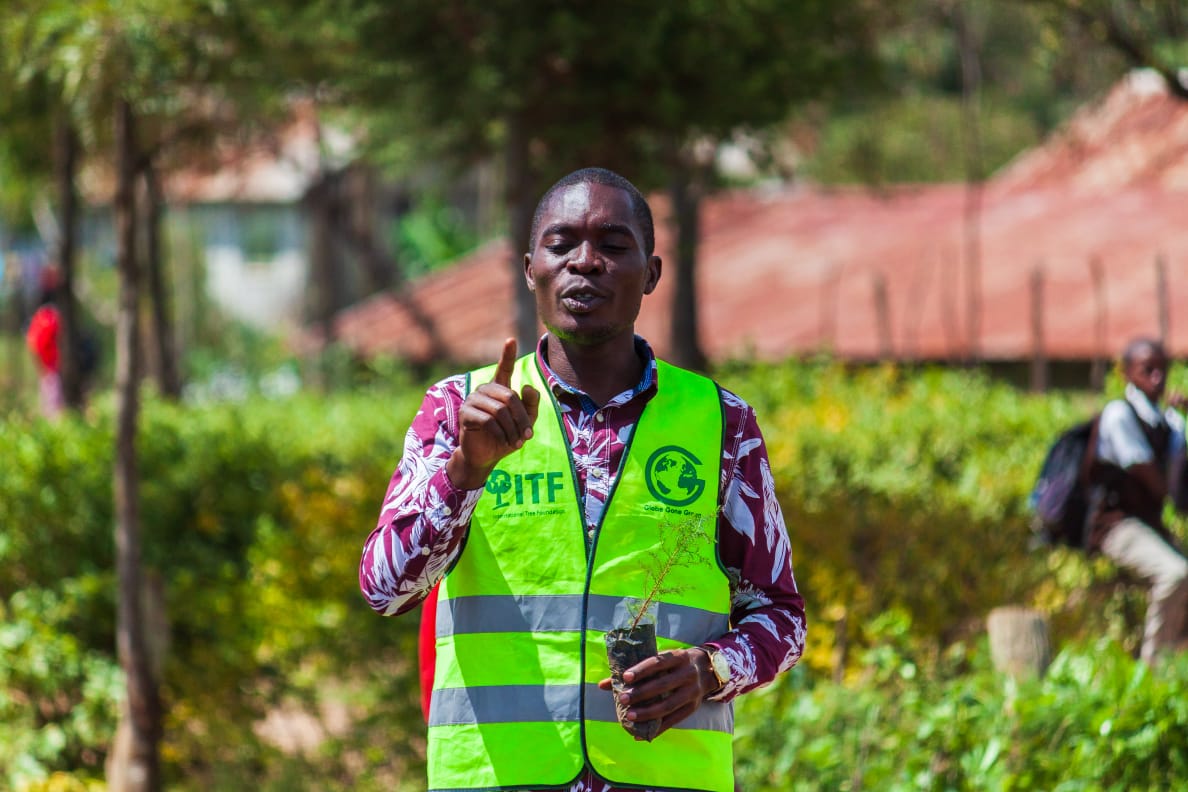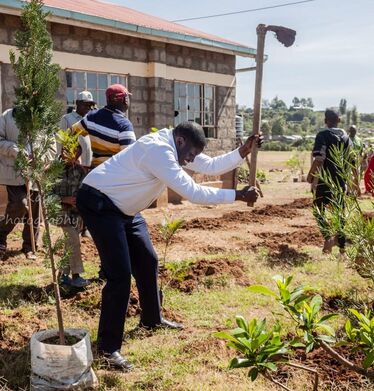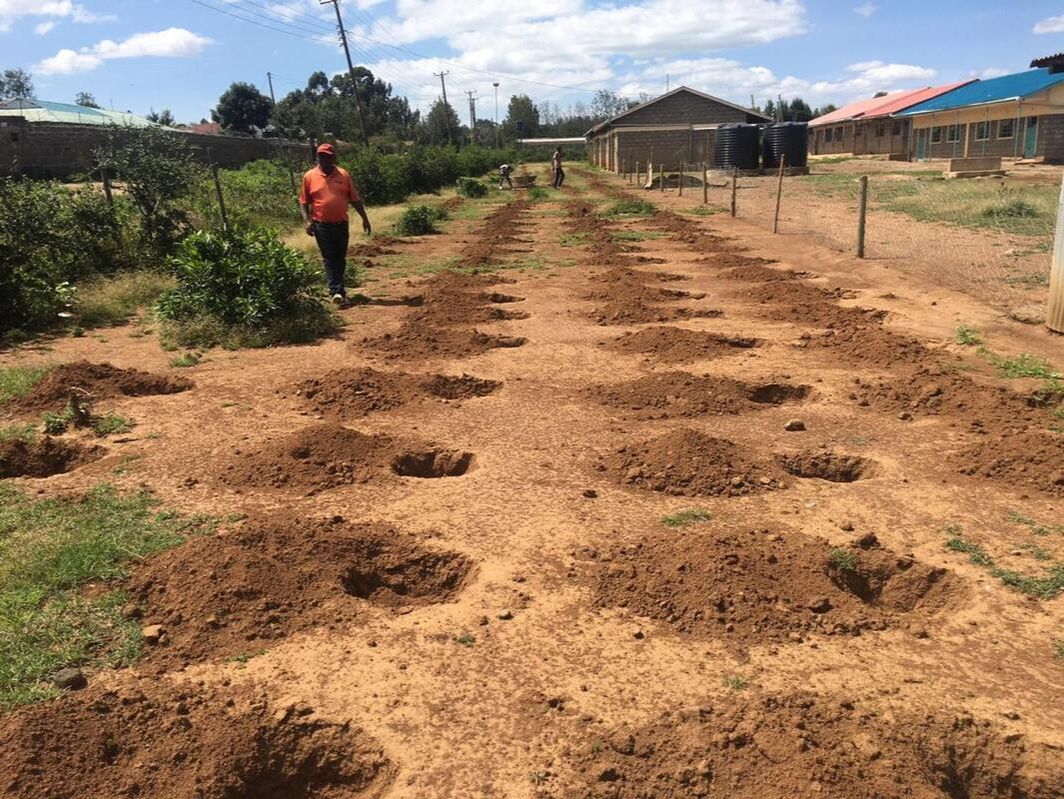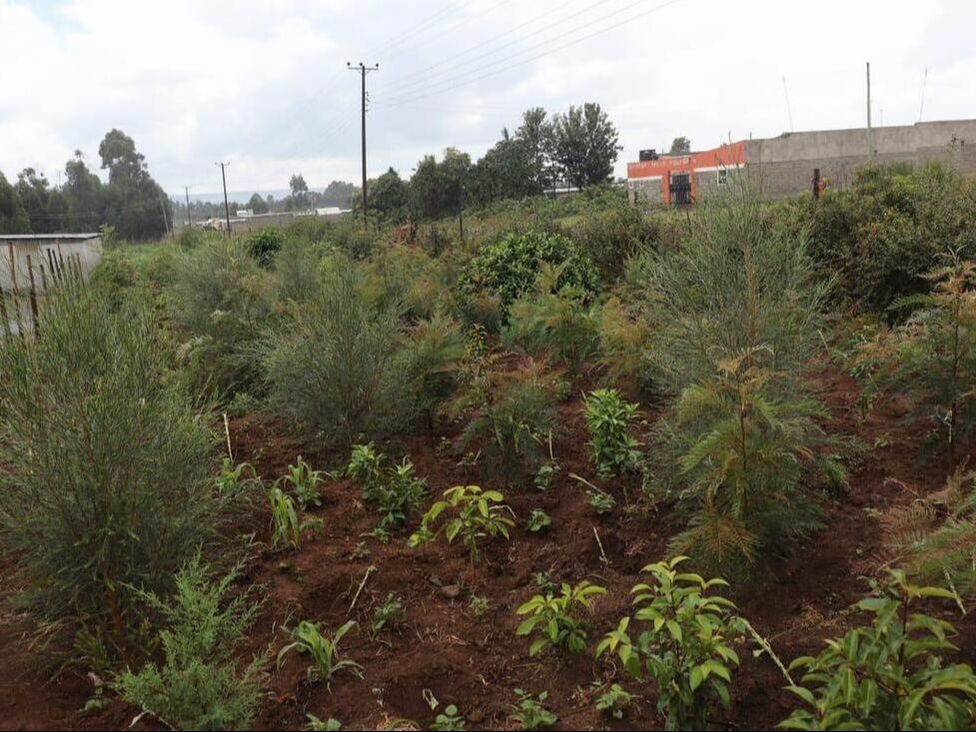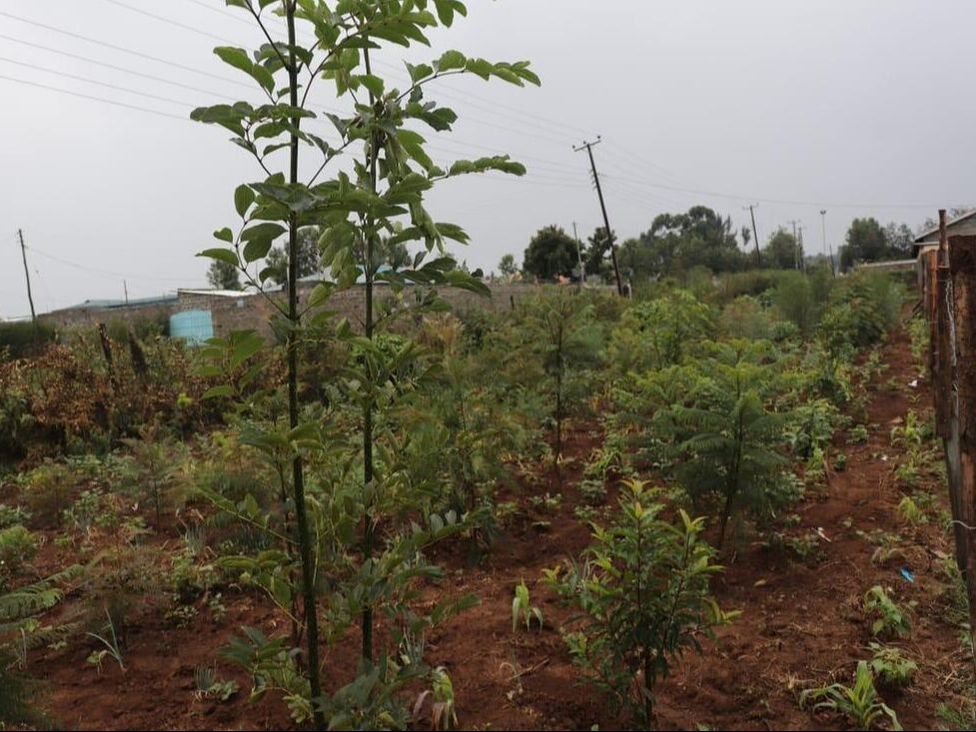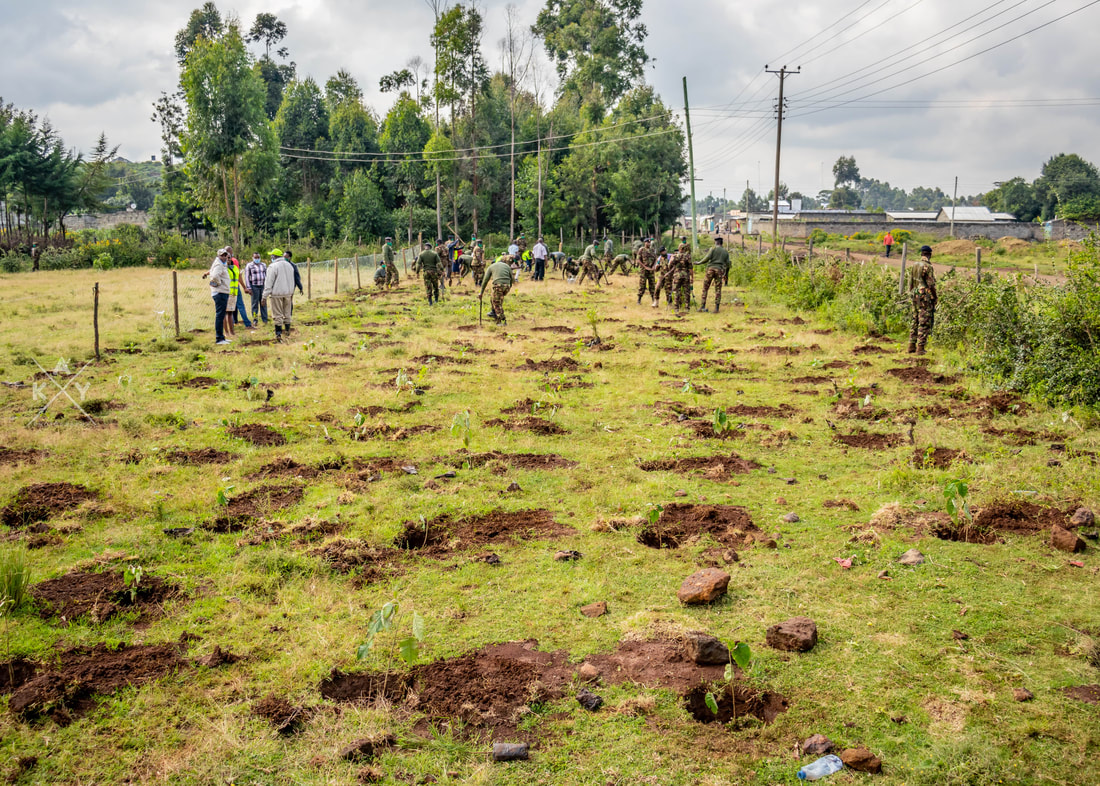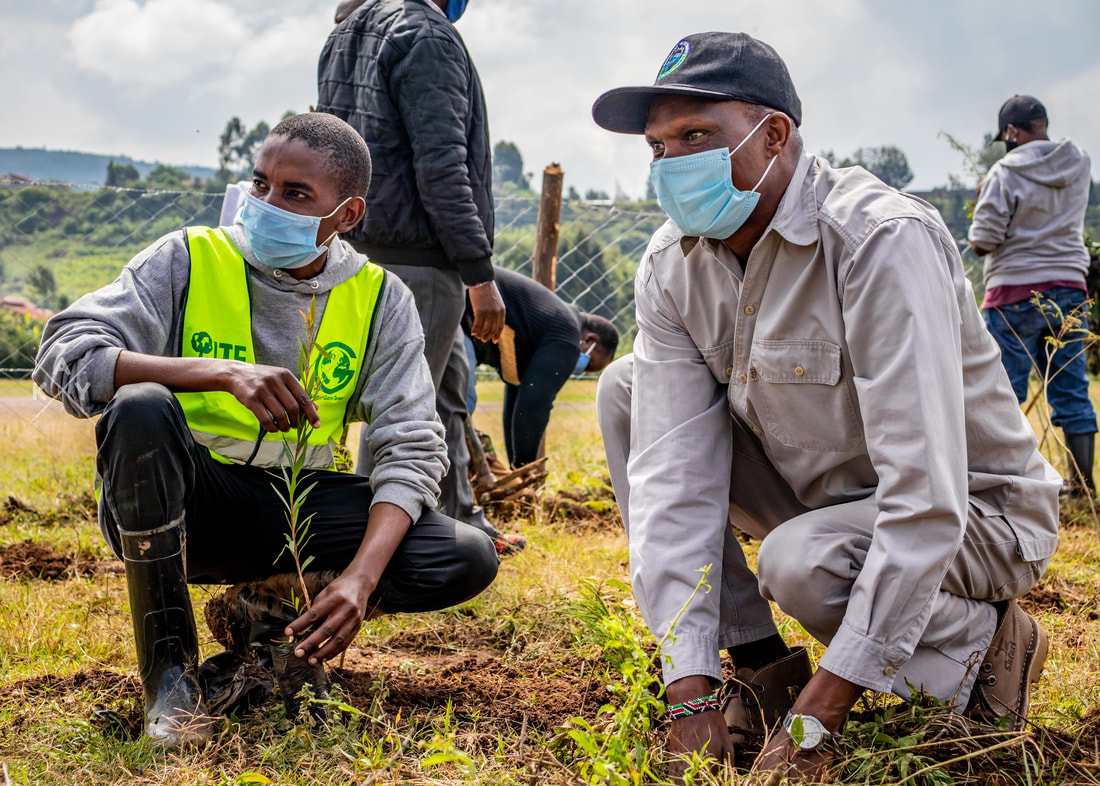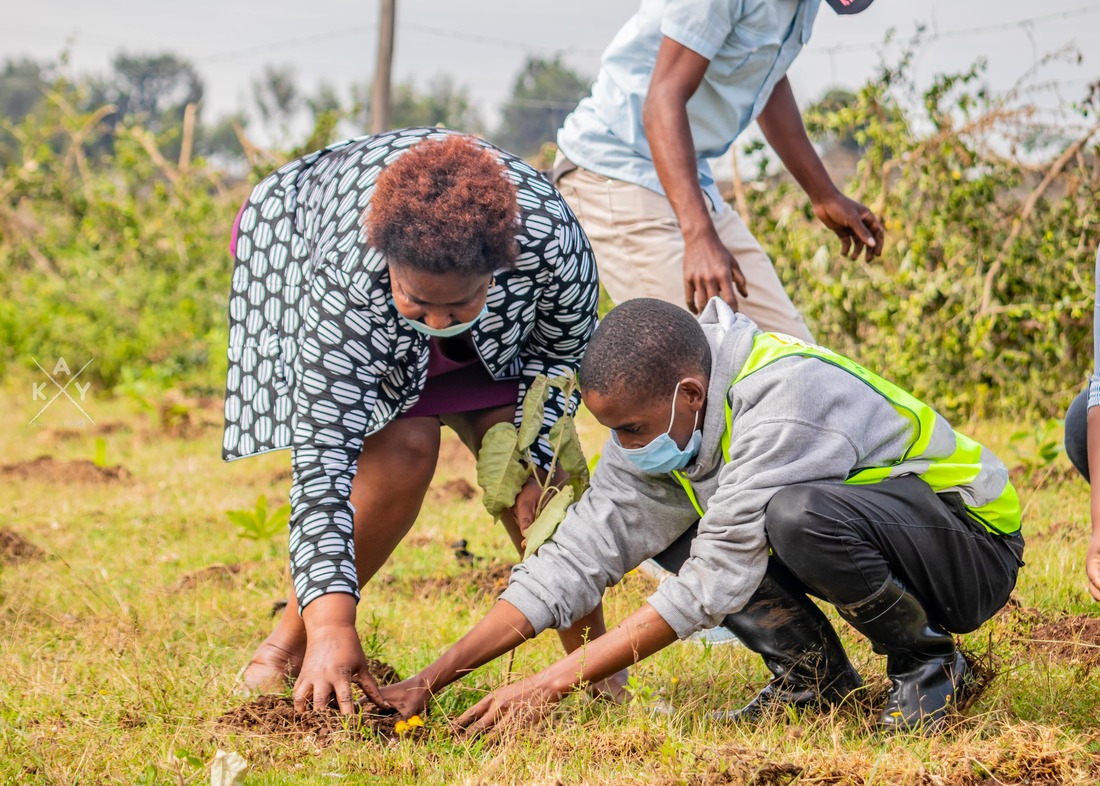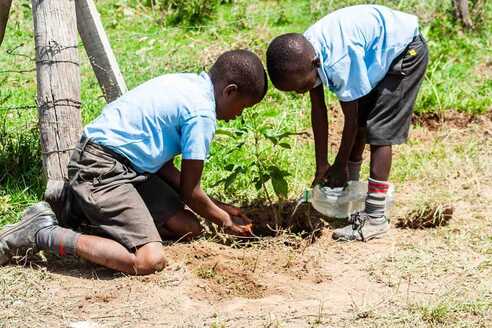As schoolchildren, we all had that moment when the lure of the world outside the window was greater than whatever our teacher was talking about. We wished we could be outside, playing and getting our hands dirty.
Now we have all been cooped up for almost a year, battling the daily struggles, some of us balancing home schooling with a growing list of tasks, and wondering if and when this will all be over. Once more, the lure of the outside world is just as mesmerizingly distracting as it was when we were schoolchildren.
For two schools in Kenya though, we've been able to help bring kids' education to life, even during a pandemic, by reforesting their school grounds. And in doing so, we’re helping to combat the climate crisis.
|
What better way for kids to understand first-hand the importance of the natural world, than to get stuck in with planting trees? Running the project on the ground is community group Globe Gone Green, operating out of Gilgil, Nakuru County, Kenya, and headed by self-professed “energetic and passionate young people who are keen on changing the status quo”. |
With the help of our partners (Globe Gone Green and the International Tree Foundation), JUST ONE Tree are planting with two schools: Teachers Primary School and Utumishi Academy. The projects provide sustainable incomes for local community members, training for young people in planting and caring for trees, and thus, helping to prevent further deforestation.
|
Teresa Gitonga, the Kenyan Programme Manager at the ITF explains: “The project aims to increase the awareness of the role of trees and engage children in tree planting, conservation and education activities in their local areas. We support teachers and schools to inspire new generations about the local and global importance of trees and forests, and to take action to protect these.” |
Set on four and a half acres without a single tree in sight, the Teachers Primary School was a prime location for Globe Gone Green to get involved with. Over 1000 of JUST ONE Tree’s seedlings have already been planted in the grounds.
A lush forest of native species, like red cedars, acacias and whistling pines, has already taken hold where once the land stood bare. Globe Gone Green has also built a tree nursery at the school, hosting 1000 seedlings to support further development of the forest.
A lush forest of native species, like red cedars, acacias and whistling pines, has already taken hold where once the land stood bare. Globe Gone Green has also built a tree nursery at the school, hosting 1000 seedlings to support further development of the forest.
Over the course of four years at the school, a pupil will be able to adopt and nurture several trees of their own. This helps to re-engage children with the environment and inspire them to understand and protect the natural world.
On a typical tree planting day, the children first have the opportunity to hear from the International Tree Foundation and Kenyan government representatives, giving them a sense of their role in the bigger picture of environmental welfare and climate change. Following the tree planting, led by the young leaders from Globe Gone Green, the children then care for their trees throughout their school life.
It is no surprise that our childhood longings are often to be outdoors and interacting with the natural world. A growing body of evidence champions the benefits of playing in nature on a child’s ability to learn and create and improve their mental and physical health (see paediatric occupational therapist, Angela Hanscom’s book, Balanced and Barefoot).
Indeed, some experts in childhood development have raised the alarm about the correlation between attention deficit disorders and problems with coordination and balance due to the lack of uninhibited, unstructured outdoor play.
|
The rise in forest schools in the UK, based on the Danish concept of ‘friluftsliv’ (open-air living), suggests that more and more parents are sharing these concerns and wanting their children to benefit in more outdoor education.
But, in order for us to have these experiences, we must protect the environment, make green spaces accessible to everyone and raise children to be champions of the natural world around them. |
At JUST ONE Tree we focus on: combatting climate change, reversing biodiversity loss and helping to educate the next generations of planet-conscious thinkers. Our work with our partners to reach children in countries near the equator, like Kenya, is vital to helping build a more balanced climate future for everyone. Each tree planted and nurtured by a pupil at these schools, is a tree absorbing carbon for us all.
A further 4000 trees are already planned to be planted in Kenyan schools by April 2021.

